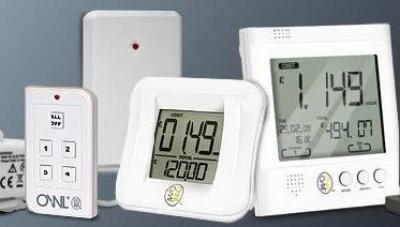US Gets First Smart Grid City

But some critics have questioned if power companies really want their customers to have accurate information on their energy use
While the UK government has announced plans to roll-out smart meters to every home in the UK by 2020, the US is pushing ahead with its plans to deploy the technology with one utility company already claiming to have an etire city on a smart grid.
Xcel Energy, based in Minneapolis, which owns coal, nuclear and natural gas infrastructure, said last week that it completed work on developing the systems for its SmartGridCity project in Boulder, Colorado. Describing what is actually involved in developing a smart grid city, the company said that measures include switching power through fully-automated substations and re-routing power around bottlenecked lines and involved deploying and integrating more than 20 applications, 95 new interfaces and more than 300 test cases.
“As measurable results continue to be achieved in the coming months, we look forward to continued improvements in operating efficiencies, as well as new and improved services for the citizens of Boulder, Colorado,” said Tim Taylor, president and chief executive, Public Service Co. of Colorado, an Xcel Energy company. “We have learned a tremendous amount from our installation of SmartGridCity and anticipate additional benefits for us and all of our customers.”
As well as implementing changes to its central electricity infrastructure, Xcel Energy has said it plans to deploy so-called smart energy meters to customers in a trial planned for later this year. The utility company says it has already rolled out the ability to check customers’ existing energy meters remotely but not deployed smart meters yet which are being touted as technology which could give more consumers control over their energy costs.
However some critics might question the efficacy of smart meters being deployed by utility companies when the technology is designed to give customers more transparency over their real energy use. In August, the UK’s Local Government Association accused a coalition of power companies of lobbying the government to block the inclusion of wireless display units in its smart meter scheme. “The plan to put a smart meter in every home is good but unless it is accompanied by an in-home energy display, for consumers, it is virtually worthless. What you can see, you can save. Why not give people all the information so they can make better choices about how much energy they use?”, Paul Bettison, chairman of the LGA told The Times.
Earlier this year the government voiced a commitment to roll out smart meters to every household in the UK by 2020. In preparation for the roll-out, the government launched a consultation in May on what information should be available via the meters aimed at consumers which closes this month. The government already issued a consultation aimed at small businesses in July this year.
Xcel Energy said it is plans to launch a Web portal which will give customers with a smart meter the ability to review their in-home energy usage. “This service will enable customers to design and personalise energy consumption strategies,” the company said.
Google and Microsoft have also announced online energy management systems in recent months. In June Microsoft launched a beta of its online application Hohm based on analytics tools licensed from the Lawrence Berkeley National Laboratory and the US Department of Energy. In May, Google announced that it had partnered with US utilities in California, Texas, Florida, India, Wisconsin, Missouri, Canada and Kentucky for development of its Google PowerMeter technology.
Despite the potential benefits of smart meters and smart grids – some experts have raised issues around the security of the technology. In March this year, researchers from US security consultancy IOActive created a worm that could spread from one smart metering device to another thanks to the wireless technology that is used to connect them, according to reports.
